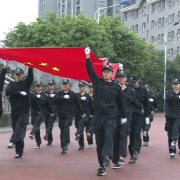发生的(发生什么事了的英语)
来源:择校网 时间:2025-02-13 04:22:51
一、发生什么事了的英语***删除标记
一、发生了什么事
what happened;what's the matter;what's up
二、【实用短句】
What’s going on?
怎么回事?发生了什么事?
1、The power went out!停电了!What’s going on?怎么回事?发生了什么事?
2、There is a crowd!那里有好多人!What’s going on?怎么回事?发生了什么事?
3、My computer went blank.我的电脑变的一片空白。What’s going on?怎么回事?发生了什么事?
拓展资料1、What Happened
发生了什么;白宫内幕
短语
1)What Really Happened看之前做好心理准备哦
2)What Had Happened Was发生了什么
3)Okay What S Happened好什么事
4)So What Else Happened那么还有什么事
5)What S Happened发生什么事
6)what get happened过去完成时态
7)Asking What Had Happened问起当时情况
8)What had happened发生了什么事;发生了什么事啊
9)What Just Happened Zoe颠覆疯云
双语例句
1)Wehavelearntwhathappened.
我们已得知发生了什么。
2)Sowhathappenedtohim?
那么在他身上发生了什么?
3)Whathappenedis enfoldedinmystery.
所发生的事情被加上神秘的色彩。
2、what's the matter
到底怎么样;有什么事吗;出什么事了
短语
1)what's the matter到底怎么样;怎么回事;怎么了;发生了什麽事
2)What's the matter出什么事了
3)What's the matter怎么了
4)what's the matter with him什么是他的毛病;与他有什么问题;他的什么
5)What's wrong the matter你怎么了
6)Medical Advice What's the Matter身体不舒服
7)what's the matter with有什么问题与;是什么毛病;的什么;与U的问题是什么
8)what's the matter int怎么啦
9)What's the matter with U什么是;与U的问题是什么
10)Our what's the matter我们到底怎么了
双语例句
1)What'sthematterwithchocolate?
这跟巧克力有什么关系呢?
2)Amy:Sowhat'sthematter?
艾米:那么到底是怎么回事?

3)What'sthematterwithyou?youlookunhappy.
恩..你有什么事吗?你看起来很不开心。
3、what's up
你好,出了什么事
短语
1)what's up怎么了;到底;大饼饼
2)what he's up to他在忙于哪些事情
3)What's Up卢艾佳;近况如何
4)Nancy what's up南希怎么了
5)What's Up Lovely夜游纽约城
6)Gay what's up同性恋怎么了
7)what's up bb正在翻译
8)What's up q发生了什么事
9)What's Up Buddy李安豪
10)what's up new发生了什么事
双语例句
1)Steven:Sotellme,what'sup?
史蒂文:好吧,告诉我,什么事?
2)Anne:Youseemreallyticked off.What'sup?
安妮:你好像很生气,出什么事了?
3)Hi,youlooksad.What'sup?
嗨.你看上去很伤心.怎么了?
二、发生的意思
"发生"的意思是指某个事件、现象或情况的出现或发展。它是描述事物经历变化、发展或产生某种效果的动词。
1."发生"的定义和使用场景
"发生"是一个常用的动词,用来描述某个事件、现象或情况的出现或发展。它可以用于各个领域,如自然科学、社会科学、日常生活等。我们可以用它来描述自然灾害的发生、社会事件的发生、个人经历的发生等。无论是大事还是小事,只要有某种变化或事件出现,我们都可以使用"发生"这个词来表达。
2."发生"的特点和语法用法
"发生"是一个及物动词,需要带宾语才能完整表达其意思。宾语可以是具体的事件、现象或情况,也可以是抽象的概念或观点。在句子中,"发生"通常作为谓语动词,与主语和其他成分一起构成完整的句子结构。它可以搭配不同的副词、介词短语或从句来进一步说明或修饰发生的具体情况。
3."发生"的常见搭配和用法
"发生"可以搭配不同的名词、动词或形容词来表达具体的情况。例如,我们可以说"发生事故"、"发生变化"、"发生冲突"、"发生争议"、"发生影响"等。此外,"发生"还可以与时间、地点、原因等相关的短语搭配使用,以进一步说明或限定发生的具体情况。
例如,我们可以说"在昨天发生了一起火灾"、"这个地区经常发生地震"、"由于天气原因,航班延误了"等。
4."发生"的同义词和近义词
除了"发生",还有一些近义词和同义词可以用来表达类似的意思。例如,"发生"可以换成"发展"、"出现"、"产生"、"发起"等。这些词语在特定的语境中可以互相替换,但在一些特定的用法和搭配中可能有所区别。根据具体的语境和表达需求,我们可以选择适当的词语来表达我们想要的意思。
综上所述,"发生"是一个常用的动词,用来描述某个事件、现象或情况的出现或发展。它可以搭配不同的名词、动词或形容词来表达具体的情况,并可以与时间、地点、原因等相关的短语搭配使用。在选择使用时,我们可以根据具体的语境和表达需求,选择适当的近义词或同义词来表达我们想要的意思。
三、能不能仔细跟我讲讲英语中表示“发生”的词的用法
take place, happen, occur, come about和break out用法区别
这些词或短语都有“发生”的意思,但用法各不相同,区别如下:
(1). take place表示“发生、举行、举办”,一般指非偶然性事件的“发生”,即这种事件的发生一定有某种原因或事先的安排,例如:
Great changes have taken place in our hometown during the past ten years.
The Olympic Games of 2008 will take place in Beijing.
(2).happen作“发生、碰巧”解,一般用于偶然或突发性事件,例如:
What happened to you?(一般不说:What did you happen?)
Maybe something unexpected happened.
I happened to see him on my way home.
= It happened that I saw him on my way home.
(3). occur作“发生、想到、突然想起”解,其意义相当于happen,例如:
What has occurred?(=What has happened?)
A big earthquake occurred(=happened) in the south of China last month.
It occurred to me that she didn’t know I had moved into the new house.
(4). come about表示“发生、产生”,多指事情已经发生了,但还不知道为什么,常用于疑问句和否定句,例如:
When Mother woke up, she didn’t know what had come about.
I’ll never understand how it came about that you were late three times a week.
Do you know how the air accident came about?
(5). break out意思为“发生、爆发”,常指战争、灾难、疾病或者争吵等事件的发生,也可以表示突然大声叫喊等,例如:
Two world wars broke out last century.
A fire broke out in the hospital in the mid-night.
After the flood, diseases broke out here and there.
She broke out,“That is too unfair!”
四、发生了什么事用英语怎么说
1、英语表达:
What is going on?
what happened?
what's the matter?
what's up?
2、what happened(发生了什么事),动作发生在过去,所以用一般过去时。
3、词汇:
发生occur;occurrence;happen;germination;arises
什么事what;What's up;What's the matter
扩展资料:
重点词汇:happen、occur
1、happen:英['hæp(ə)n]美['hæpən]
发生;碰巧;偶然遇到。
短语:
happen to be碰巧是;恰巧是
as it happens碰巧;偶然发生
happen on偶然遇到或发现
happen to meet偶然遇见
happen to coincide不约而同;不谋而合
双语例句:
OK, clearly we'd be much better off if we had some systematic quantitative way to tell whether something wouldhappenspontaneously.
好,如果我们有一些系统定量的方法来判断,一个过程是否会自发进行,那就会更好了。
2、occur:英[ə'kɜː]美[ə'kɝ]
vi.发生;出现;存在。
[过去式 occurred过去分词 occurred现在分词 occurring ]
短语:
occur as以...的形式出现
occur for发生在…时候
双语例句:
And will make mistakes. And therefore, you write your programs so that catastrophes don'toccurwhen those mistakes are made.
就是人是很愚蠢的,会犯错误的,因此,你要这样设计你的程序,以达到当犯错误时避免大事故的目的。
参考资料来源:百度翻译--发生了什么事
好了,文章到此结束,希望可以帮助到大家。







